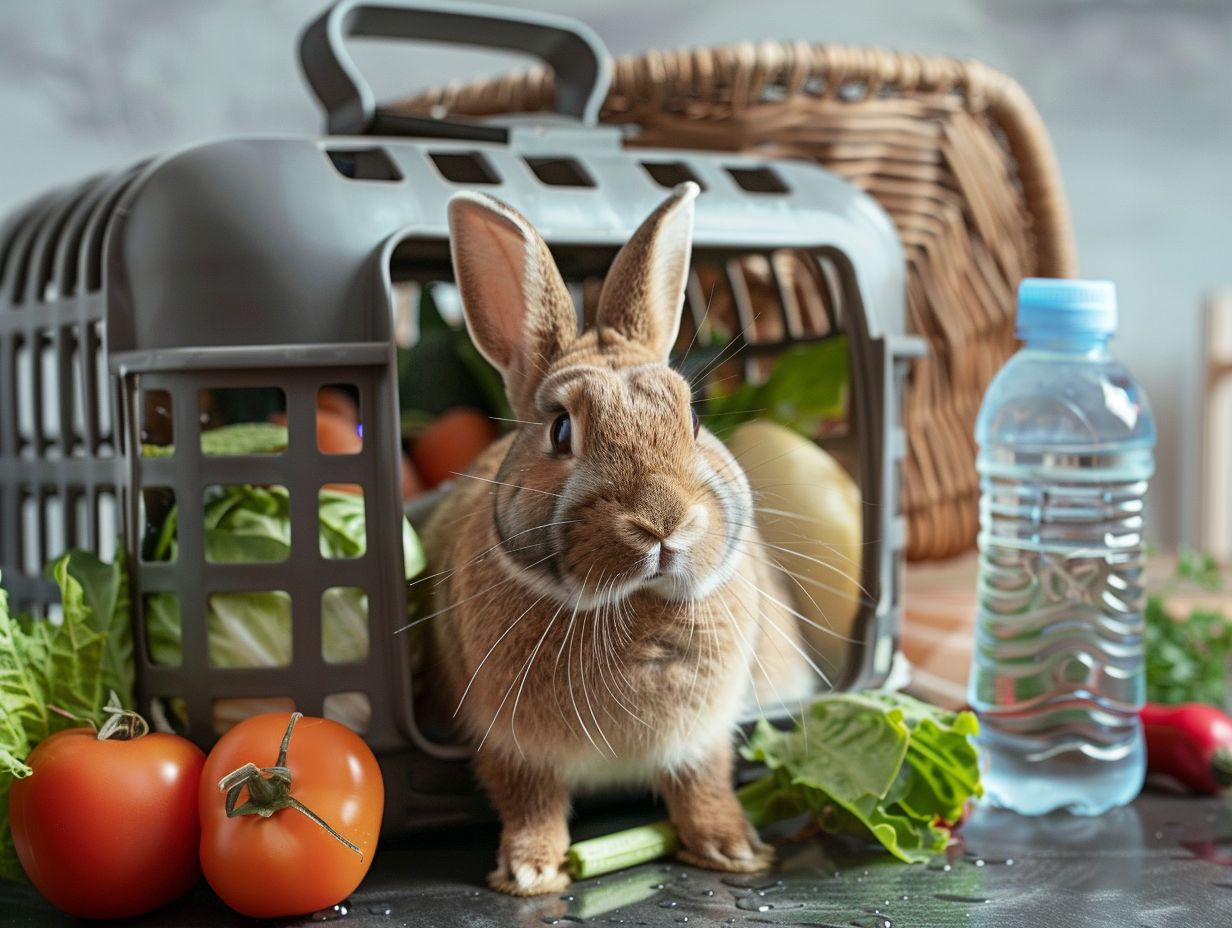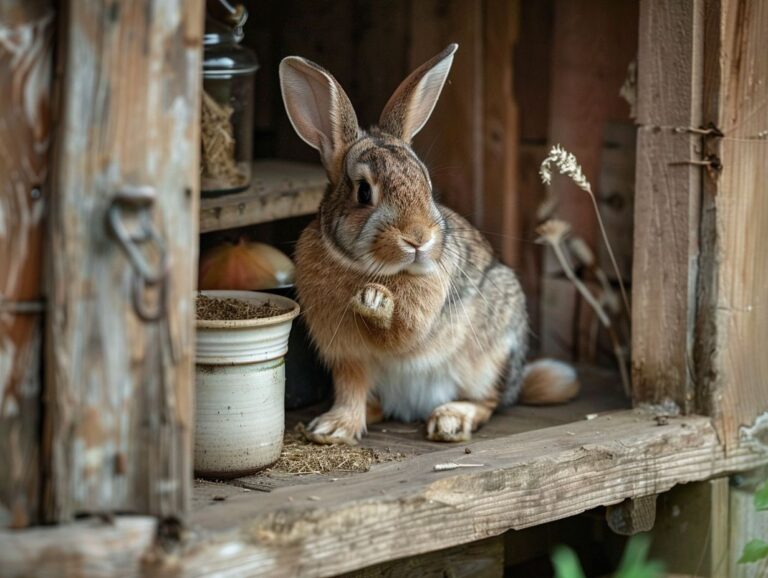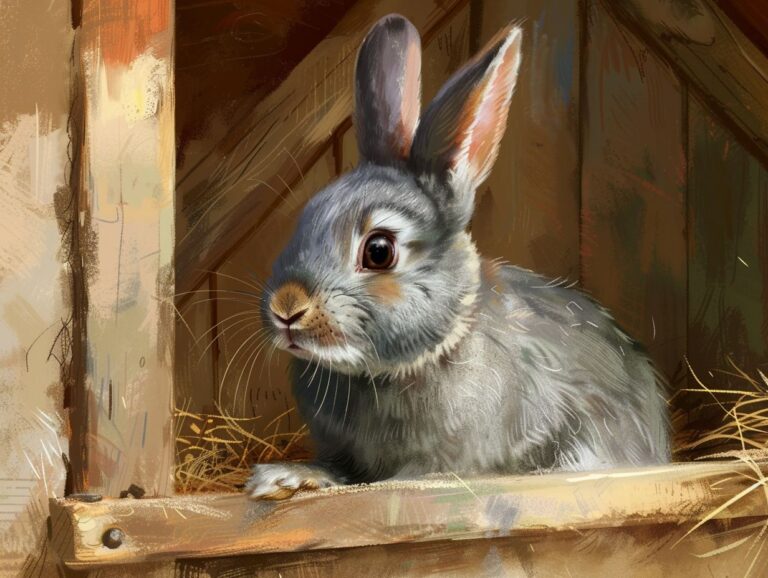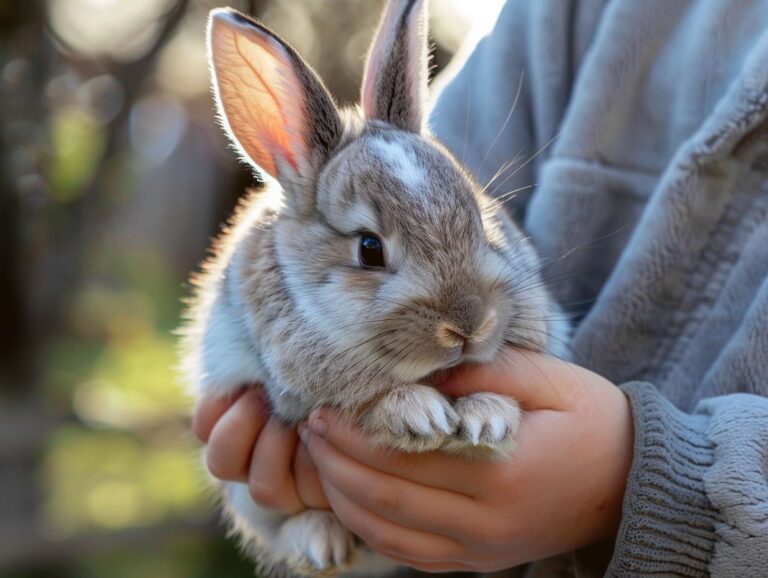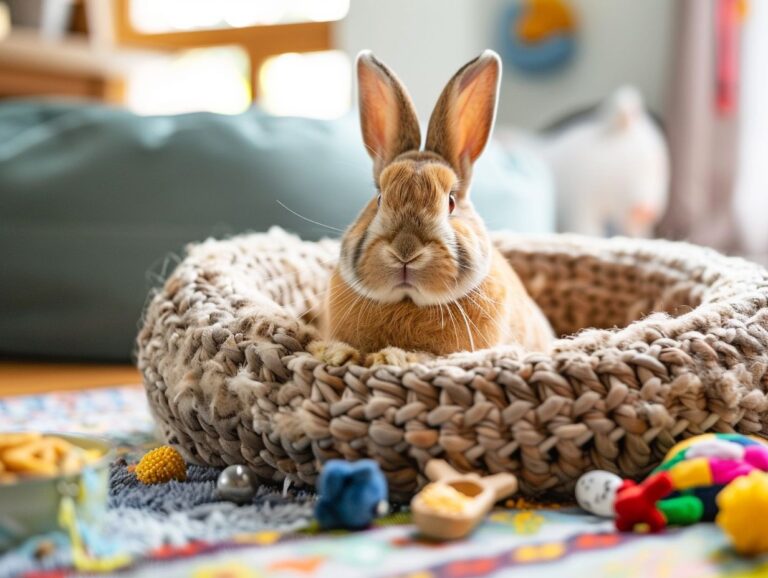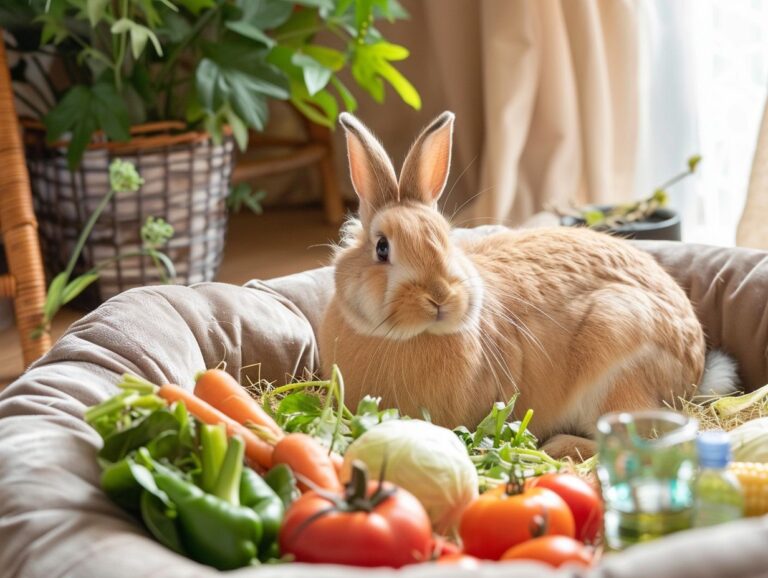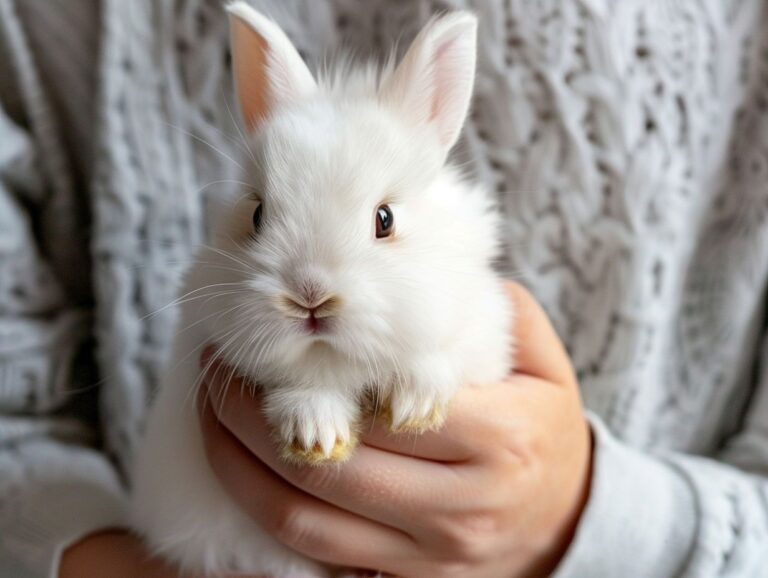Dutch Rabbits As Pets: Care, Diet, and Health For Small Breeds
Considering getting a small-sized rabbit as a pet? Dutch rabbits may be the perfect choice for you!
We explore the characteristics of Dutch rabbits, their average size and weight, lifespan, and personality.
Learn how to properly care for Dutch rabbits, including their housing needs, ideal diet, and common health issues to be aware of.
Discover how to keep your Dutch rabbit healthy and happy in your small space!
Key Takeaways:
What are Small Sized Rabbit Breeds?
Small sized rabbit breeds refer to breeds of rabbits that typically weigh between 2 to 6 pounds.
Their popularity as pets stems from their manageable size, making them ideal for small living spaces. These breeds are known for their friendly and social nature, often forming strong bonds with their owners. Their adorable appearance, with fluffy fur and expressive eyes, adds to their appeal. Common characteristics of small rabbit breeds include agility, curiosity, and intelligence, making them entertaining and engaging companions. Owners of small rabbit breeds often enjoy their playful antics and affectionate behavior, enriching their bond with these charming pets.
What are the Most Popular Small Sized Rabbit Breeds?
Among the most popular small-sized rabbit breeds are Dutch rabbits, known for their distinctive Dutch markings and friendly demeanor. Other common small breeds include Netherland Dwarf rabbits and Hollander rabbits.
Dutch rabbits are characterized by their compact size with short, rounded bodies and upright ears. They are known to have a curious and inquisitive nature, making them a delight to observe and interact with. These rabbits are also quite intelligent and can be trained to perform various tricks.
Netherland Dwarf rabbits, on the other hand, are prized for their tiny stature and adorable features. Despite their small size, they are known to be energetic and playful, often demonstrating a spunky personality. These rabbits are well-suited for indoor living due to their manageable size. If you are considering getting a new pet, check out our guide on mini rex rabbits as pets for care, diet, and health information tailored for small breeds.
Hollander rabbits are recognized for their striking markings and compact build. They are friendly and affectionate, enjoying the company of their human companions. With their gentle temperament and charming appearance, Hollander rabbits make wonderful pets for individuals and families alike.
What are the Characteristics of Dutch Rabbits?
Dutch rabbits, characterized by their distinctive Dutch markings, are known for their friendly and sociable temperament. These rabbits require regular grooming to maintain their coat and are prone to certain health issues like respiratory diseases.
In terms of their markings, Dutch rabbits typically have a white body with colored markings around their neck, face, and back. Their unique appearance is a notable trait that differentiates them from other breeds. In terms of temperament, Himalayan rabbits as pets are known to be affectionate and social creatures, enjoying the company of humans and other pets. This sociable nature makes them popular choices for households seeking interactive pets.
Grooming plays a crucial role in the care of Havana rabbits. Their short, sleek fur requires regular brushing to prevent matting and to keep their coat in good condition. Their nails need to be trimmed periodically to avoid overgrowth and potential injuries.
Despite being generally healthy, Dutch rabbits are prone to certain health issues, with respiratory diseases being a common concern. Ensuring a clean living environment, providing proper nutrition, and regular veterinary check-ups can help mitigate these risks and keep your Dutch rabbit healthy and happy.
What is the Average Size and Weight of Dutch Rabbits?
Dutch rabbits are typically small to medium-sized rabbits with an average weight ranging between 3 to 5 pounds. Their compact size makes them ideal for individuals seeking a manageable pet.
These rabbits are known for their petite frame and adorable appearance, often attracting pet owners looking for a rabbit that won’t require excessive space. While some Dutch rabbits may exceed the typical weight range slightly, they generally stay within the 3 to 5 pounds bracket. This size variation allows for some diversity in choices without straying too far from the compact nature that makes Dutch rabbits so appealing.
What is the Lifespan of Dutch Rabbits?

Dutch rabbits, known for their charming personalities and distinctive markings, require a balanced diet rich in hay, vegetables, and pellets to thrive. Factors such as genetics, environment, and stress levels can also influence the lifespan of these beloved pets.
Regular exercise, a clean living environment, and social interaction are essential for maintaining the health and happiness of Dutch rabbits. Owners should be vigilant in monitoring any signs of illness, such as dental problems or digestive issues, as early detection can greatly improve their chances of a longer life.
What is the Personality of Dutch Rabbits?
Dutch rabbits are known for their friendly and affectionate personality, making them excellent companions for individuals or families.
Their engaging and sociable demeanor often draws people to them, seeking their companionship and joyful presence in the home.
These rabbits thrive on human interaction and enjoy being the center of attention. Their curious and inquisitive nature leads them to explore their surroundings eagerly, making them fun pets to observe. When properly cared for and given enough love and attention, Dutch rabbits reciprocate with loyalty and affection, forming strong bonds with their human counterparts.
How to Care for Dutch Rabbits?
Caring for Dutch rabbits involves providing suitable housing, a balanced diet, regular grooming, and vigilant monitoring of their health. Understanding their specific needs is crucial for maintaining their well-being.
In terms of housing, Polish rabbits as pets require a spacious and well-ventilated area that allows them to move freely. A hutch with a solid floor and separate resting and litter areas is ideal.
Ensuring they have access to clean water at all times and plenty of fresh hay for chewing is essential for their digestive health. Their diet should consist of high-quality pellets, fresh vegetables, and occasional treats like fruits for medium rabbits.
Regular grooming sessions, including brushing their fur and trimming their nails, help prevent matting and overgrowth. Monitoring their health for signs of illness, such as changes in appetite or behavior, is crucial for early detection and timely intervention.
What Kind of Housing Do Dutch Rabbits Need?
Dutch rabbits require spacious and well-ventilated housing that allows for adequate movement and exploration. Ensuring cleanliness and comfort in their living environment is essential for their health and well-being.
When considering the habitat setup for Dutch rabbits, it’s crucial to provide a cage that is at least 24 x 24 inches in size for a single rabbit, with additional space if housing more than one. Opt for cages with solid bottoms to prevent injury to their delicate feet. Ventilation is key to maintaining a healthy environment, so choose cages with adequate airflow while avoiding drafts.
Regularly cleaning the cage and removing waste is vital to prevent the buildup of bacteria and odors. Bedding material like hay or straw should be provided for comfort and to absorb moisture. Adding toys and tunnels for mental stimulation and exercise can contribute to their overall well-being.
What is the Ideal Diet for Dutch Rabbits?
The ideal diet for Dutch rabbits consists of high-quality hay, fresh vegetables, and limited pellets to ensure proper nutrition and prevent obesity. Adequate hydration and balanced meals are key to their overall health.
Hay is a crucial component of a Dutch rabbit’s diet as it provides necessary fiber for their digestive system and helps wear down their teeth continuously. Fresh vegetables offer essential vitamins and minerals vital for overall health and well-being. Pellets should be limited to prevent weight gain, with portion control being crucial to maintain a healthy weight. Hydration is paramount, so providing fresh water at all times is essential. By offering a well-rounded diet with the right proportions, Dutch rabbits can thrive and avoid common health issues associated with obesity.
What are the Common Health Issues for Dutch Rabbits?

Common health issues in Dutch rabbits include respiratory diseases, obesity, and gastrointestinal (GI) problems. Regular veterinary check-ups and a health-conscious approach can help prevent and manage these conditions.
Respiratory diseases are a common concern among Dutch rabbits, often caused by poor ventilation or exposure to drafts. Symptoms to watch for may include sneezing, nasal discharge, and labored breathing. For medium-sized breed care, it is important to be aware of these symptoms.
Obesity risks in Dutch rabbits are primarily attributed to overfeeding and lack of exercise, leading to potential health complications.
To address GI issues, ensure a balanced diet rich in fiber to promote healthy digestion. Signs of gastrointestinal problems may include changes in appetite, diarrhea, or bloating.
Providing ample fresh water, a clean living environment, and regular exercise can aid in maintaining overall rabbit health.
How to Keep Dutch Rabbits Healthy?
Maintaining the health of Dutch rabbits involves monitoring for signs of well-being, preventing common health issues, and seeking timely veterinary care when needed. Vigilance and proactive steps are key to ensuring their vitality.
One essential aspect of promoting the health of Dutch rabbits is to observe their behavior and physical appearance regularly. A healthy rabbit will have bright eyes, a shiny coat, and be alert and active. It is crucial to provide a well-balanced diet rich in hay, leafy greens, and fresh water to meet their nutritional needs.
Creating a safe and clean living environment is paramount for their well-being. Regularly cleaning their living area, providing ample space for exercise, and ensuring proper ventilation are vital in preventing illnesses. Implementing preventive measures such as regular vaccinations, parasite control, and dental care can significantly reduce the risk of health issues.
Despite proactive care, knowing when to seek veterinary assistance is crucial. Signs such as changes in appetite, unusual discharges, lethargy, or difficulty breathing should prompt immediate consultation with a rabbit-savvy veterinarian. Regular check-ups and prompt treatment of any health concerns can help in maintaining the overall health and happiness of Dutch rabbits.
What are the Signs of a Healthy Dutch Rabbit?
Indicators of a healthy Dutch rabbit include clear bright eyes, glossy fur, active behavior, and a healthy appetite. Regular observations and attentive care can help maintain their health and vitality.
A Dutch rabbit’s eyes should be free from discharge or cloudiness, showing alertness and brightness, indicating good health. Their glossy fur, free from mats or bald patches, reflects proper grooming and overall well-being. An active Dutch rabbit will engage in hopping, digging, and exploring its surroundings, showcasing physical fitness. A healthy appetite, characterized by eagerly eating fresh hay, vegetables, and pellets, is a positive sign of their well-being. Monitoring these cues regularly and seeking veterinary advice promptly if any abnormalities arise is essential for ensuring the best possible care for your Dutch rabbit.
How to Prevent Common Health Issues in Dutch Rabbits?
Preventing common health issues in Dutch rabbits involves maintaining a balanced diet, providing regular exercise, ensuring a clean living environment, and scheduling routine veterinary check-ups. Proactive measures can mitigate health risks effectively.
One crucial component of a silver rabbits pet diet is hay, which aids in digestion and promotes dental health. Incorporating a variety of leafy greens, such as romaine lettuce and parsley, can provide essential vitamins and minerals. It’s also important to limit sugary treats and focus on high-quality pellets specific to rabbits’ dietary needs.
Encouraging exercise through supervised playtime and providing ample space for exploration can prevent obesity and musculoskeletal issues. Regularly cleaning their living quarters and offering fresh water daily helps maintain hygiene and reduces the risk of infections.
Conclusion: Dutch Rabbits Make Great Pets for Small Spaces
In conclusion, Dutch rabbits emerge as excellent choices for individuals seeking pets in compact living spaces. Their charming personalities, manageable size, and adaptable nature make them ideal companions for various households.
One of the key advantages of owning Dutch rabbits is their friendly and social nature. These rabbits are known to develop strong bonds with their owners, bringing an added sense of companionship to the household. Their compact size makes them well-suited for apartment living or smaller homes, where space may be limited.
Moreover, Dutch rabbits are relatively easy to care for, requiring a balanced diet, regular exercise, and proper grooming. Their playful demeanor and curious nature add to their appeal as pets, providing entertainment and joy to their human companions.
Frequently Asked Questions
1. Can Dutch rabbits make good pets for small living spaces?
Yes, Dutch rabbits are small in size and can adapt well to small living spaces such as apartments or condos. However, they still need plenty of exercise and playtime outside of their cage.
2. What should I feed my Dutch rabbit for a healthy diet?
A healthy diet for a Dutch rabbit should consist of unlimited timothy hay, fresh vegetables, and a small amount of pellets specifically designed for rabbits. It is important to avoid sugary treats and fruits as they can cause digestive issues.
3. Do Dutch rabbits require any special grooming?
Yes, Dutch rabbits have a medium-length coat that requires regular grooming to prevent matting and hairballs. They should be brushed at least once a week and have their nails trimmed every 4-6 weeks.
4. How often should I take my Dutch rabbit to the vet for check-ups?
It is recommended to take your Dutch rabbit to the vet for a check-up at least once a year. This allows for any potential health issues to be caught early on and for your rabbit to receive necessary vaccinations.
5. Are Dutch rabbits prone to any specific health problems?
Dutch rabbits are generally healthy animals, but they can be prone to dental issues and ear infections. It is important to monitor their teeth and ears regularly and seek veterinary care if any problems arise.
6. How much exercise do Dutch rabbits need?
Dutch rabbits are energetic animals and need at least 3-4 hours of exercise outside of their cage every day. This can include supervised playtime, exploring outside, or hopping around in a rabbit-proofed room. Providing them with toys and tunnels can also help keep them mentally and physically stimulated.

